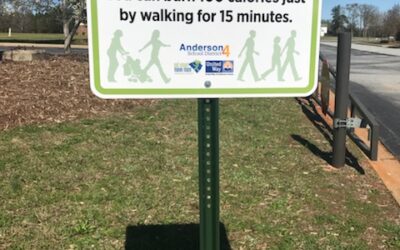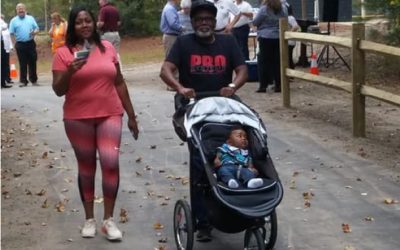Anderson School District 4 pick-up lines don’t mean sitting and waiting any more.
Mini-Grant Projects
City of Newberry Gets Wheelchair-Accessible Swings
The special needs community in Newberry can now play at the park with the addition of ADA-accessible swings.
Sweet Gum Trail is Open to Public
Tall Longleaf pines stood silent guard as the first official hikers took to the Sweet Gum Trail in Camden on Tuesday afternoon. About 50 people participated in a ribbon-cutting ceremony for the official opening of the 2/3-mile trail that now connects Scott and Woodward parks.



